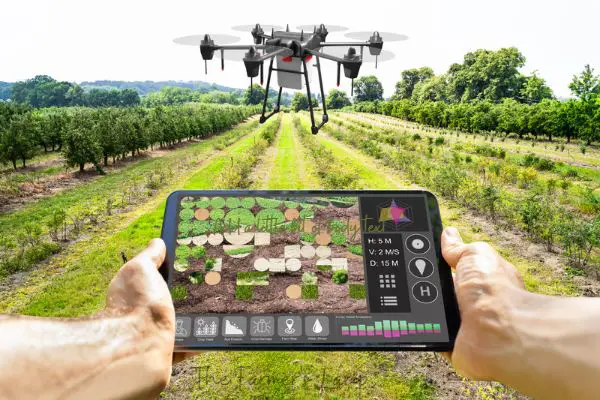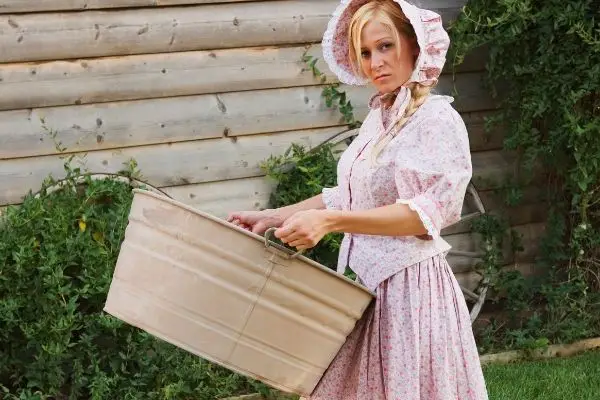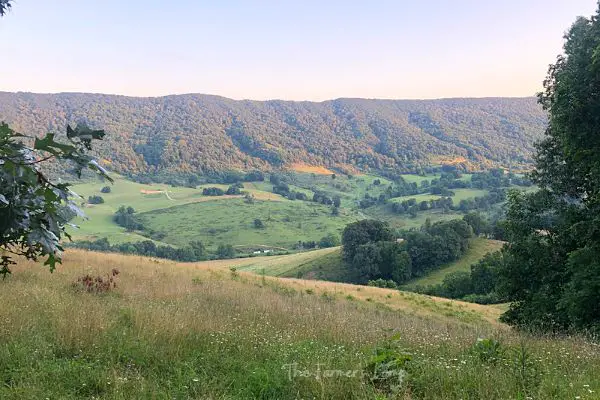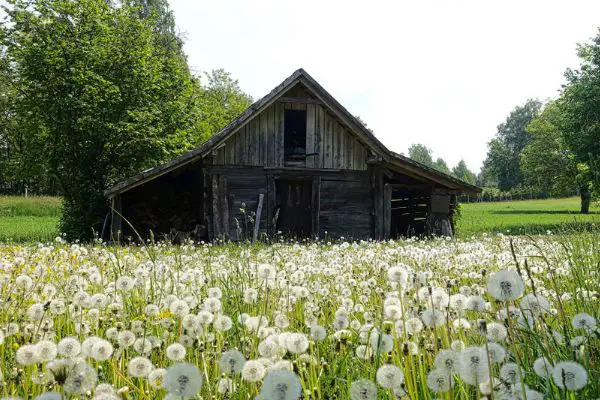Are you ready to leave the rat race and live off the land? If so, where do you start? Buying land can be overwhelming and it’s hard to consider all the aspects. The property you’re dreaming of is personal and depends on your goals and dreams. These 8 things to look for when buying homestead property are good starting points for things to consider.

8 Things to Look for When Buying Homestead Property
We lived by the coast on a small piece of paradise for over twenty years. When we decided to expand our homestead and property lines, we knew we would have to move out of the area. For almost two years we searched for the perfect place to begin our new journey and we learned a lot along the way. I am very thankful for my homesteading community which helped to guide us in making our decision. There are so many things to consider other than price, I would have never known where to start if it wasn’t for them.
#1 The Laws
You may find the perfect piece of land for your homestead, but if you can’t farm on it or raise livestock legally, then what good will it be? When choosing a location, check the local and state laws to see whether or not there are certain restrictions put in place for the area you’re looking to buy in.
Make sure you get it in writing. If a neighbor tells you, “You don’t need building permits around here,” contact the local building and zoning department to verify that.
It is illegal in some states/cities to sell raw milk, collect rainwater, and even eggs. Make sure to check and double-check the laws for the area where you want to move to so that you can homestead on the land you are wanting to buy. In addition, if the land is located within a community, they may have their own laws forbidding certain things that the city says are allowable. HOA’s and POAs override county laws in many circumstances.
We looked at buying ten acres in development only to find out it was against their laws to have chickens and other livestock. Even though the county said it was legal, the development itself had laws against it.

#2 Determine What Predators Are on the Property
It’s important to identify the predators in your area such as bears, coyotes, bobcats, foxes, hawks, owls, eagles, etc., that may pose a threat to your livestock. It’s equally important to know what is there that could damage or destroy your garden such as deer, rabbits, moles, etc. Knowing the animals that inhabit your area will help you be prepared to protect your livestock and your garden.
#3 Weather
What is the weather like for where you want to move to? Do they have long winters or summers? How long is the growing season? Is the area prone to natural disasters?
When I lived out west we experienced a lot of earthquakes and had long dry periods, but you could grow pretty much year-round. The polar opposite of that was when I lived in Michigan. Long winters, shorter growing seasons, tornadoes, and humidity. In addition to tornadoes and earthquakes, we lived on the east coast for the last 20 years where we dealt with hurricanes, flooding, sandy soil, and high heat with humidity.
#4 Work
Have you thought about what your family will do for income once you move? Will you be transferring your job? If so, how far will you have to drive for work? If you want to make a living off of the land, will the local economy support that business? These are things I took into great consideration when looking for our new homestead. If we want to raise chickens and sell eggs, will there be a market for it? Or does everyone sell eggs and the market is over-saturated?
If you want to start a B&B, will your land be in an area where people want to vacation? If you work online, can you get a reliable internet connection?
#5 Taxes
My grandparent’s built (and bought) their home decades ago. Unfortunately, the property taxes have increased so much over the years that they can no longer afford them. Their house and land is paid for, but the taxes are forcing them to lose their home.
In addition to local property tax, what are the state taxes where you want to live? Where we just moved to they don’t have a state income tax, however, the sales tax is 4% higher than where we used to live.
#6 Soil
One factor that often gets overlooked is the condition of the soil. Soil testing can save you from many headaches down the line.
Soil testing is the process of analyzing soil samples to determine its composition, nutrient content, and soil pH level. This information can be invaluable when it comes to making informed decisions about land use and development. Soil testing can reveal whether or not there are any contaminants in the soil that could pose a danger to human health or the environment. It can also reveal if the soil is suitable for farming, gardening, or construction.
Soil testing can help you avoid costly surprises down the line. If there are contaminants present in the soil, it could lead to expensive cleanup costs or even legal liability. By having the soil tested before purchasing the property, you can identify any potential issues and make an informed decision about whether or not to proceed with the purchase.

#7 Water Source
I probably should have listed this one as Number One. Clean drinking water is the most crucial factor, in our opinion, to consider when evaluating a property. Having access to clean water is vital for the success and sustainability of your homestead.
You should have the water tested for the presence of heavy metals and other toxins. We had a friend who bought a piece of property on which the well had been shocked with chlorine. Once it was out of the system, they saw a difference in the water and found it had a lot of iron in it. We suggested a whole-house water filter system and it fixed their problem.
#8 Community
You may want solitude and privacy, but we all need community. I’ve heard from many people over the years that they bought their dream land in a not-so-dreamy community. Sometimes tight-knit small towns don’t take kindly to outsiders moving in.
Before you move into a new area, spend some time there. Visit the local diner, the churches, the parks, or the coffee shop. Talk with the locals and get a feel for the townsfolk. Meet your future neighbors and work on building future relationships.
Wrap Up
There is so much that goes into looking for a homestead property beyond price and size. We can’t cover them here. We hope these tips help you get started on your way to your dream homestead property.
As always, we’re here to help.






11. Look at what predators are in the area like bears, coyotes, bobcats, foxes, etc. What critters are present to eat your garden, like rabbits, squirrels, opossums, eagles or hawks? If you know what animals live there, you can make a plan to defend yourself, your livestock, and your vegetables from them.
12. Probably one of the most important things to look for in a piece of property is if it has a source of clean, drinkable water. Without water, your homestead will not thrive.
Thank you so much for the thoughts you shared with us. I talk so much about these two in other articles I didn’t realize they were not in this article. This article is several years old and was in need of an update. You helped me recognize the missing elements and now I’ve updated the article to include these and a couple of other points that should have been in there. Thank you for being a part of TFL Community!
9. Distance from nuclear plants. Aging nuclear facilities are a danger to the entire planet. Location of less than 100 miles may mean forced evacuation.
10. Geophysical elements. Living on the side of a volcano, no matter how rich the soil, can prove dangerous. We are on the Big Island looking at a forced evacuation as we speak.
Oh wow- best of luck to you and thank you for sharing your tips.